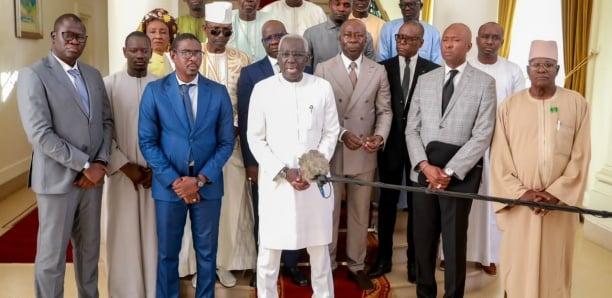Employer Unions and Emergence

Since liberalism in the political field occurred in the 1980s, abundance has been the hallmark of Senegal. It is in the press that this is easily noticed. The number of newspapers, radio stations, television channels, as well as websites and information portals, has literally “exploded” over the last 20 years. The same situation is also found in the world of work. The number of unions is only increasing, regardless of the sector concerned. The same is true of employers’ unions. Structures such as the National Employers Council (Cnp), the National Confederation of Employers of Senegal (Cnes), must share the spotlight with the Senegal Economic Group (Ges), the Senegal Investors Club led by Goudiaby Atépa, the Senegal Business Movement (Medes) led by Mbagnick Diop, as well as with the 50% National Preference Club founded by Abdoulaye Sylla, the boss of Ecotra. Apart from the first two organizations cited, no one is able to calculate the level of representativeness of all these structures which want to speak on behalf of companies in Senegal.
Read the column: Chicken Legs, Let’s Not Slaughter our Poultry Farmers!
Currently, there are just over 407,880 companies registered in Senegal, mainly SMEs and SMIs. The State, within the framework of the Emerging Senegal Plan (Pse), has raised a lot of hope for an economic take-off driven by the private sector, particularly within the framework of Pap2a. The industrial and agro-industrial sectors in particular had to diversify and contribute greatly to reducing youth unemployment. For these objectives, the public authorities have not skimped on means. As the country moves to the phase of exploitation of the mining and oil resources of its soil and subsoil, legal texts have been developed and adopted to promote and facilitate the involvement of nationals, through the law on local content, particularly in the hydrocarbons sector.
Read the column: Bceao Against the Economy
But, even in these areas, if we see timid incursions by nationals in certain well-targeted sectors, we rather have the feeling that Senegalese entrepreneurs are more tempted by joint ventures with foreign companies. Even those who loudly proclaim their wish to see public contracts reserved for nationals do not want to step forward when the State does not clear the ground for them. Worse, even when the public authorities sometimes offer them contracts on a silver platter, these national entrepreneurs do not always stand out for their orthodox business management. Blatant cases were noted when it was necessary to “wrest” certain public contracts for the Regional Express Train (Ter) or on the Diamniadio urban center, from nationals, to entrust them to foreigners. If this had not been done, these markets would have been nothing more than financial pits.
If it is true that our local capitalists have many flaws, our public authorities are not free from faults either. We could even consider that the two things are linked. Looking at the pedigree of most Senegalese business leaders and the situation of their businesses, we realize that they only survive thanks to the infusion of public funds. How many billionaires “created” by former President Abdoulaye Wade remain? Once they were weaned from public contracts carried out with kickbacks, many closed down and remained discreet. Some were able to retrain by entering into the good graces of the current authorities, while others had to make way for new “champions” born with the new order of things. The situation is such that no one is surprised that the country still has to resort to external financing to balance its budget.
The reality of our economic situation strongly influences our international policy. Some of the compatriots who delude themselves with the illusion that once oil and gas leave our ocean coasts, we will be able, like certain Arab countries, to look down on our foreign partners, Western ones in particular, should very quickly wake up from their colourful dreams. We still have a very long way to go. And this in many areas. But it is true that we will not be able to embrace everything at once. However, in the economic sector, we can already start by creating champions, and stop putting obstacles in our way.
Read the column: Migrations, Stop the Wave
The first thing to do, with strong encouragement from the public authorities, would be to reduce the number of employer structures. The large industrialized countries of Europe and the Americas, and even Asia, which each have thousands of companies, do not have more than a single employers’ centre, or more than one union per sector. Why does the State, which already knows the level of weakness of our societies, continue to tolerate the presence of « empty shells », both from employers and workers, knowing that their only purpose is to disrupt the functioning of business? At a time not very long ago, leaders favoured this policy of fragmentation. We saw that it did not bring anything positive, quite the contrary. The multiplicity of these organizations which only exist on paper, and are reduced to the presence of their leader, is not a factor of development. For the country to hope to be able to emerge, the State must put an end to recreation.
By Mohamed GUEYE / mgueye@lequotidien.sn

